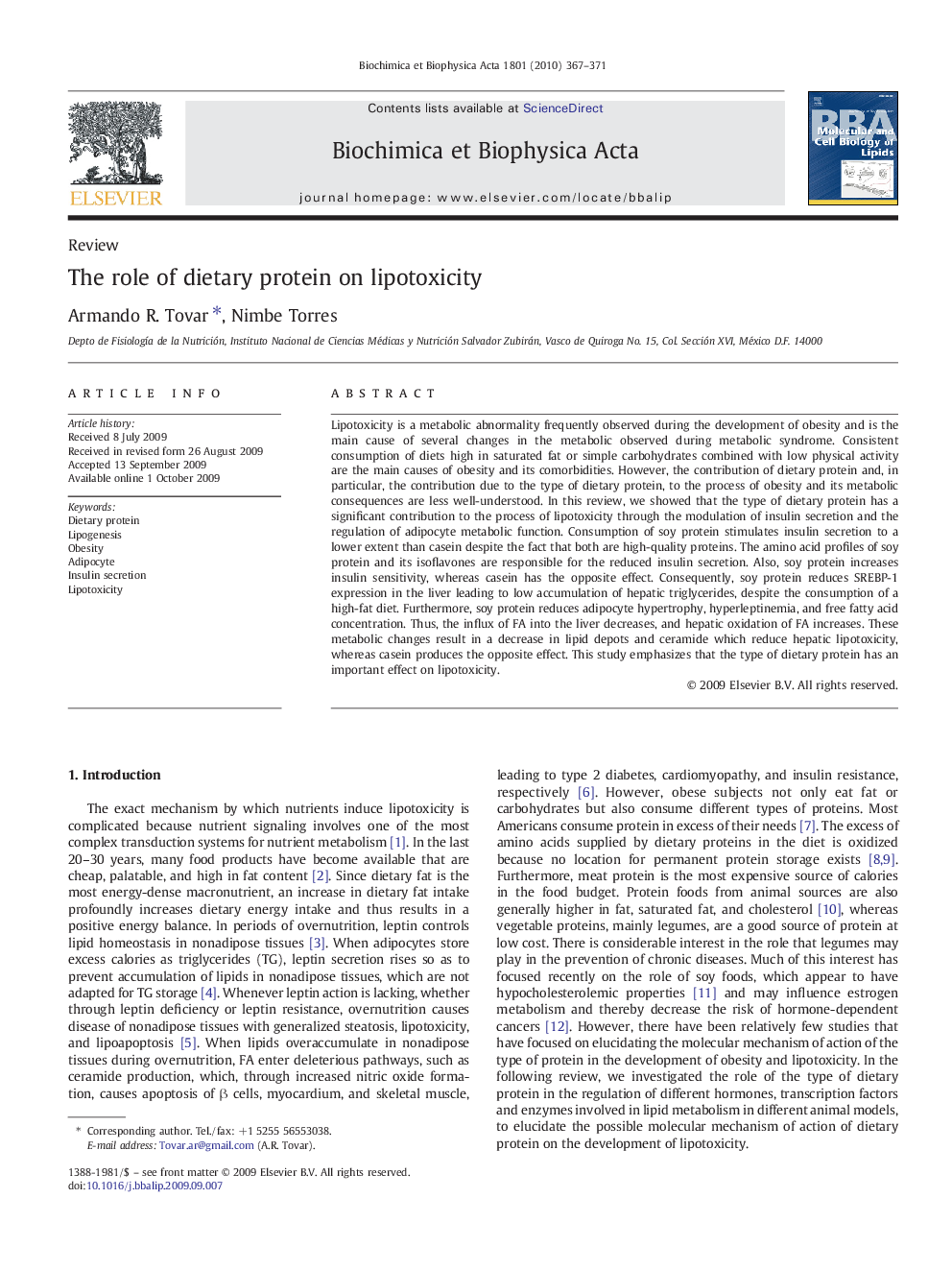| Article ID | Journal | Published Year | Pages | File Type |
|---|---|---|---|---|
| 1949815 | Biochimica et Biophysica Acta (BBA) - Molecular and Cell Biology of Lipids | 2010 | 5 Pages |
Lipotoxicity is a metabolic abnormality frequently observed during the development of obesity and is the main cause of several changes in the metabolic observed during metabolic syndrome. Consistent consumption of diets high in saturated fat or simple carbohydrates combined with low physical activity are the main causes of obesity and its comorbidities. However, the contribution of dietary protein and, in particular, the contribution due to the type of dietary protein, to the process of obesity and its metabolic consequences are less well-understood. In this review, we showed that the type of dietary protein has a significant contribution to the process of lipotoxicity through the modulation of insulin secretion and the regulation of adipocyte metabolic function. Consumption of soy protein stimulates insulin secretion to a lower extent than casein despite the fact that both are high-quality proteins. The amino acid profiles of soy protein and its isoflavones are responsible for the reduced insulin secretion. Also, soy protein increases insulin sensitivity, whereas casein has the opposite effect. Consequently, soy protein reduces SREBP-1 expression in the liver leading to low accumulation of hepatic triglycerides, despite the consumption of a high-fat diet. Furthermore, soy protein reduces adipocyte hypertrophy, hyperleptinemia, and free fatty acid concentration. Thus, the influx of FA into the liver decreases, and hepatic oxidation of FA increases. These metabolic changes result in a decrease in lipid depots and ceramide which reduce hepatic lipotoxicity, whereas casein produces the opposite effect. This study emphasizes that the type of dietary protein has an important effect on lipotoxicity.
